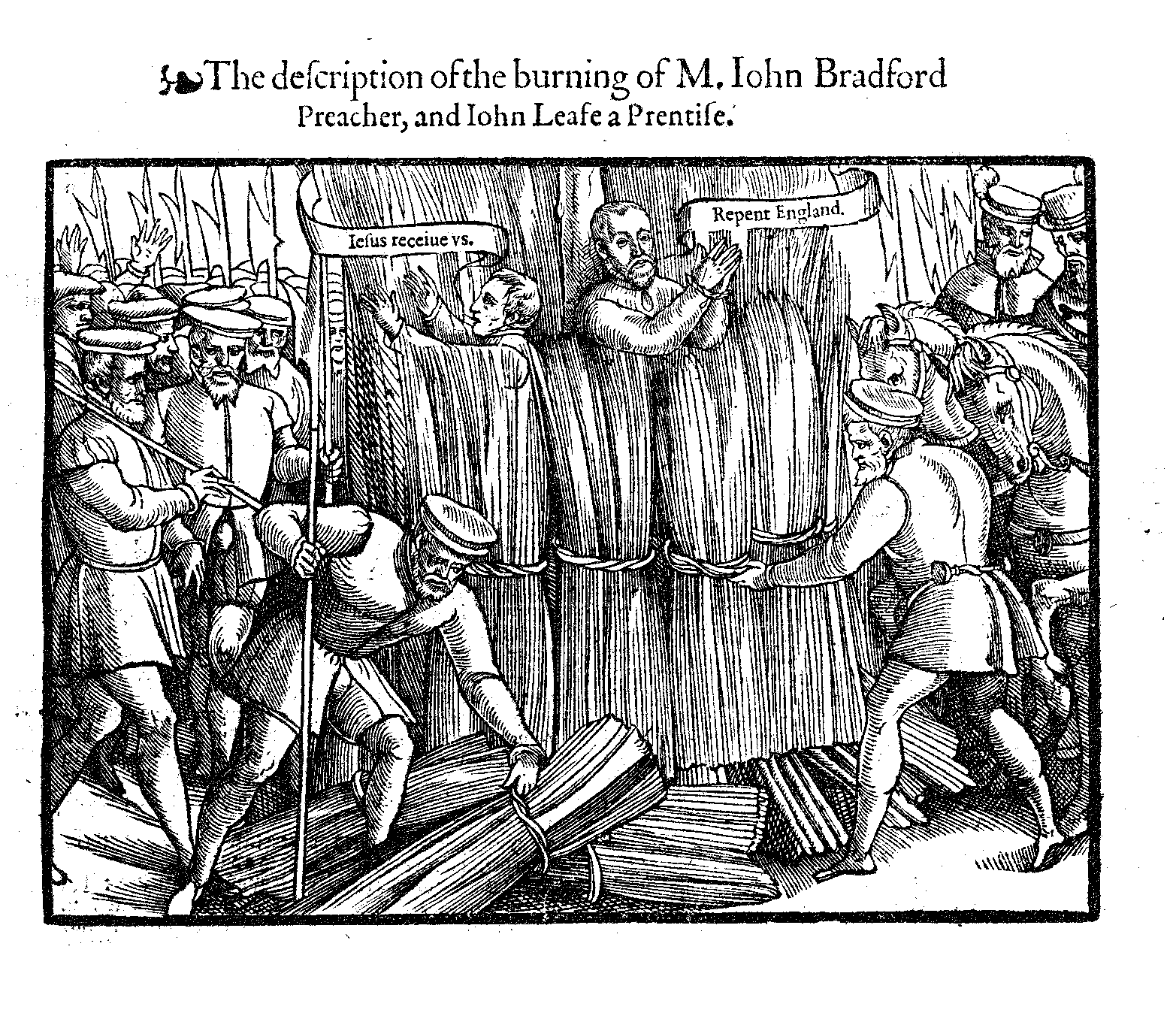"Then they went on; and just at the place where Little-Faith formerly was robbed, there stood a man with his sword drawn, and his face all over with blood.
Then said Mr. Great-Heart, 'Who art thou?'
The man made
answer, saying, 'I am one whose name is Valiant-for-truth. I am a
pilgrim, and am going to the Celestial City. Now, as I was in my way,
there were three men that did beset me, and propounded unto me these
three things: 1. Whether I would become one of them; 2. Or go back from
whence I came; 3. Or die upon the place. (Prov. 1:11-14). To the first I
answered, I had been a true man for a long season, and therefore it
could not be expected that I should now cast in my lot with thieves.
Then they demanded what I would say to the second. So I told them that
the place from whence I came, had I not found incommodity there, I had
not forsaken it at all; but finding it altogether unsuitable to me, and
very unprofitable for me, I forsook it for this way. Then they asked me
what I said to the third. And I told them my life cost far more dear
than that I should lightly give it away. Besides, you have nothing to
do thus to put things to my choice; wherefore at your peril be it if
you meddle. Then these three, to wit, Wild-head, Inconsiderate, and
Pragmatic, drew upon me, and I also drew upon them. So we fell to it,
one against three, for the space of above three hours. They have left
upon me, as you see, some of the marks of their valor, and have also
carried away with them some of mine. They are but just now gone; I
suppose they might, as the saying is, hear your horse dash, and so they
betook themselves to flight.'
Mr. Great-Heart: 'But here was great odds, three against one.'
Valiant-for-Truth: 'Tis true; but little and more are nothing to him
that has the truth on his side: "Though an host should encamp against
me," said one, "my heart shall not fear: though war should
rise against me, in this will I be confident" (Ps 27:3). Besides, said he, I
have read in some records, that one man has fought an army: and how
many did Samson slay with the jawbone of an ass!'
Mr. Great-Heart: 'Why did you not cry out, that
some might have come in for your succour?'
Valiant-for-Truth: 'So I did to my King, who I knew could hear me, and
afford invisible help, and that was sufficient for me.'
Then said Great-Heart to Mr. Valiant-for-truth, 'Thou
hast worthily behaved thyself; let me see thy sword.' So he showed it
him.
When he had taken it in his hand, and looked thereon awhile, he said, 'Ha, it is a right Jerusalem blade.'
Valiant-for-Truth: 'It is so. Let a man have one of these blades, with a
hand to wield it, and skill to use it, and he may venture upon an angel
with it. He need not fear its holding, if he can but tell how to lay
on. Its edge will never blunt. It will cut flesh and bones, and soul,
and spirit, and all.' (Heb. 4:12).
Mr. Great-Heart: 'But you fought a great while; I wonder you was not
weary.'
Valiant-for-Truth: 'I fought till my sword did cleave to my hand; and
then they were joined together as if a sword grew out of my arm; and
when the blood ran through my fingers, then I fought with most courage.'
Mr. Great-Heart: 'Thou hast done well; thou hast resisted unto blood,
striving against sin. Thou shalt abide by us, come in and go out with
us; for we are thy companions.'
Then they took him and washed his
wounds, and gave him of what they had, to refresh him: and so they went
together.
Now, as they went on, because Mr. Great-Heart was delighted in him,
(for he loved one greatly that he found to be a man of his hands,) and
because there were in company those that were feeble and weak,
therefore he questioned with him about many things..."
Excerpt from: Bunyan, J. (1678) Pilgrims Progress, Michigan: Christian Classics Ethereal Library (CCEL) Web Edition, pgs. 207-208





